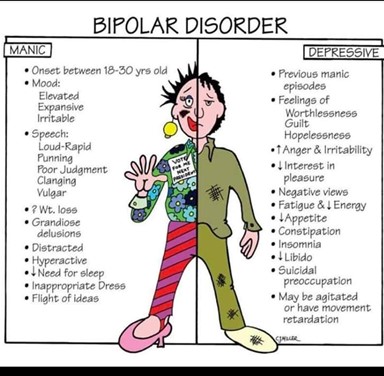A nurse is admitting a client who has experienced a weight loss of 11 kg (25 lb) in the past 3 months. The client weighs 40 kg (88 lbs) and believes she is fat. Which of the following aspects of care should the nurse consider the first priority for this client?
identify the client's nutritional status.
Provide a structured environment for the client.
Plan a therapeutic diet for the client
Request à mental health consult.
The Correct Answer is A
A. Identify the client's nutritional status.
Explanation:
Given the significant weight loss and the client's distorted belief about her body image (believing she is fat despite losing weight), it is crucial to assess the client's nutritional status first. Rapid weight loss and distorted body image are characteristic features of an eating disorder, such as anorexia nervosa. The nurse needs to determine the extent of malnutrition and potential medical complications related to inadequate nutrition. This assessment will guide the subsequent interventions.
Why the other choices are incorrect:
B. Provide a structured environment for the client.
While providing a structured environment can be important in managing eating disorders, such as anorexia nervosa, it is not the first priority. Understanding the client's nutritional status and medical condition takes precedence.
C. Plan a therapeutic diet for the client.
Planning a therapeutic diet may be part of the client's care plan, but without understanding the underlying nutritional status and potential eating disorder, creating a diet plan may not be effective or appropriate.
D. Request a mental health consult.
While a mental health consult is important for addressing the client's distorted body image and potential eating disorder, it should follow the assessment of nutritional status. The nutritional assessment provides critical information for both medical and psychological interventions.
Nursing Test Bank
Naxlex Comprehensive Predictor Exams
Related Questions
Correct Answer is A
Explanation
A. The client responds to questions with disorganized speech:
Disorganized speech is a hallmark of acute mania, often reflecting racing thoughts, pressured speech, and difficulty staying on topic.
B. The client reports that voices are telling him to write a novel:
Reporting that voices are telling the client to write a novel suggests auditory hallucinations, which can occur in various psychiatric conditions, not specifically indicative of acute mania.
C. The client's spouse reports that the client has recently gained weight:
Weight gain is not a typical hallmark of acute mania. In fact, during manic episodes, individuals might experience decreased appetite and sleep, leading to potential weight loss.
D. The client is dressed in all black:
Dressing in all black is not a specific sign of acute mania. While changes in clothing choices or appearance can sometimes be associated with mood changes, this finding alone is not indicative of acute mania.

Correct Answer is C
Explanation
A. Explain to the client that the behavior was unacceptable: While addressing the behavior is important, it is more effective to first establish clear limits and boundaries to prevent further incidents.
B. Explore the truth of the client’s statements: This step involves assessing the client's statements and understanding their perspective, which is important but can be done after setting behavioral limits.
C. Set behavioral limits for the client: Establishing clear behavioral limits is crucial for maintaining safety and order in the psychiatric unit. It helps ensure that the client understands what is expected of them and the consequences of unacceptable behavior. This is particularly important if the client has exhibited aggressive behavior, as it helps prevent further incidents and maintains a safe environment for everyone.
D. Establish a client relationship: Building a therapeutic relationship is essential for effective treatment, but it should be done in the context of a safe environment where clear behavioral expectations have already been established.
Whether you are a student looking to ace your exams or a practicing nurse seeking to enhance your expertise , our nursing education contents will empower you with the confidence and competence to make a difference in the lives of patients and become a respected leader in the healthcare field.
Visit Naxlex, invest in your future and unlock endless possibilities with our unparalleled nursing education contents today
Report Wrong Answer on the Current Question
Do you disagree with the answer? If yes, what is your expected answer? Explain.
Kindly be descriptive with the issue you are facing.
